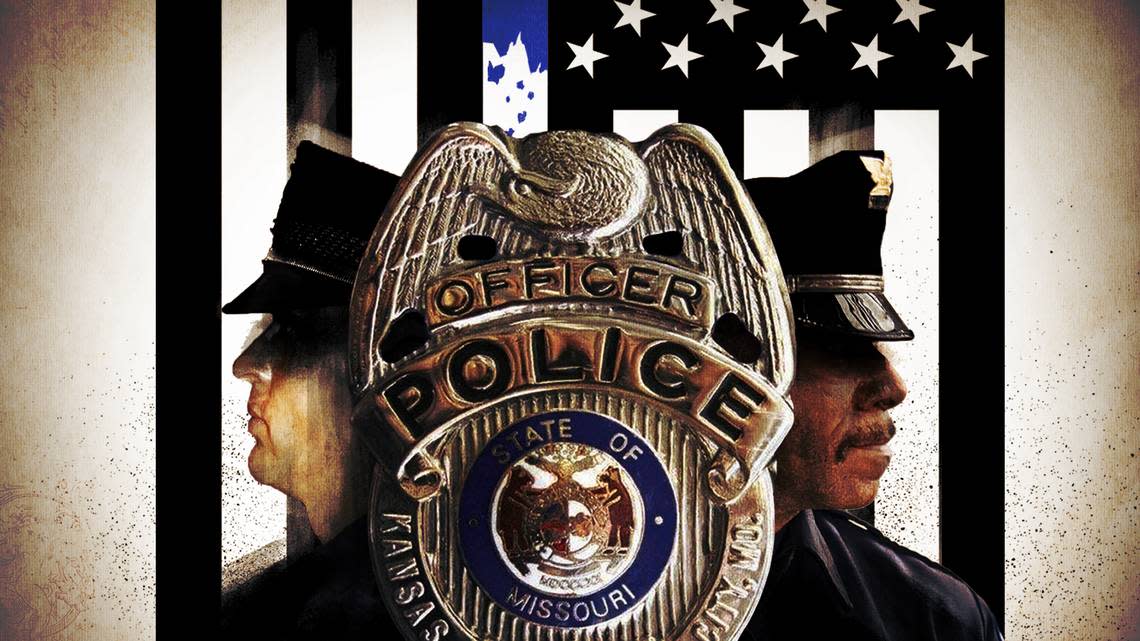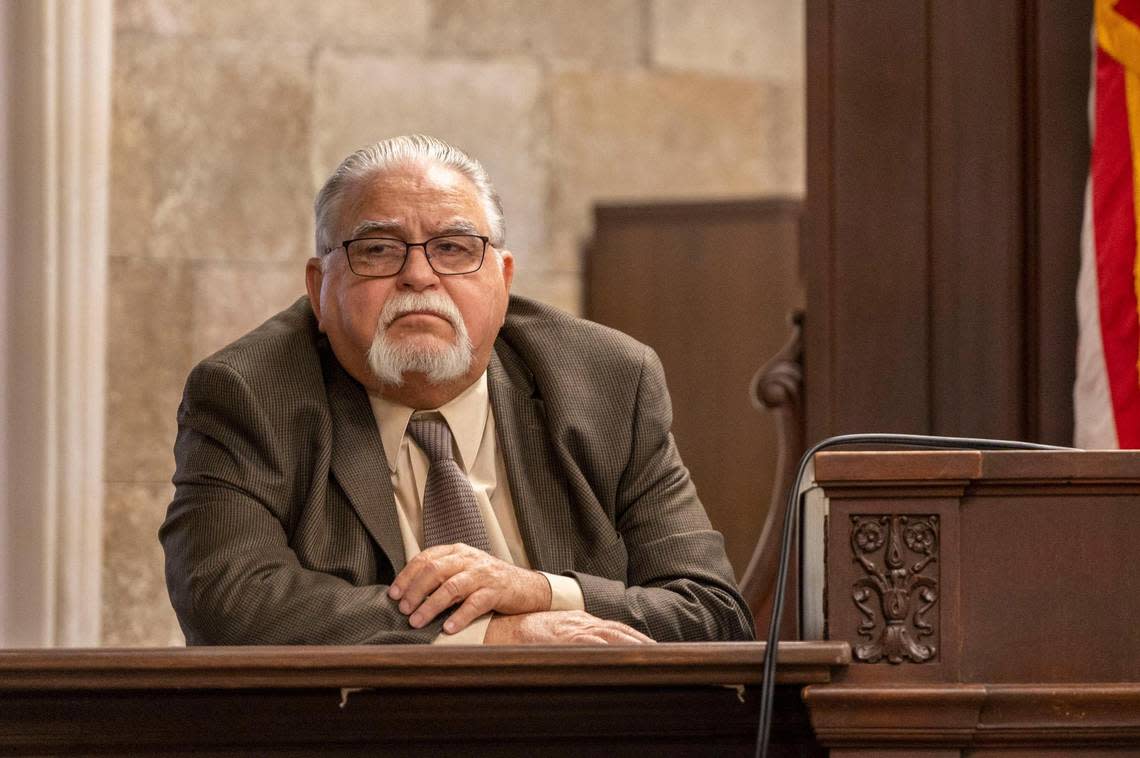As we enter 2023, let’s celebrate a year of Kansas City Star journalism with big impact
The Kansas City Star aspires every day to be a force for positive change in this city and region we love.
It is my privilege to work alongside The Star reporters, visual journalists and editors who dig out stories that need telling and do all they can to make sure those stories are seen by readers who will demand the problems be solved.
These journalists are fearless and compassionate, and their work is crucial to all of us.
Today we want to highlight a collection of 2022 Star journalism that held the powerful to account and gave a voice to those who needed one.
We love to win national awards like a Pulitzer Prize, but our success is not measured in trophies. It’s measured in impact, in being part of changing laws and bad behaviors and making lives here better.
The stories below are just a few examples. We look forward to continuing to work on your behalf in 2023.
Racism in the Kansas City Police Department
▪ The Star’s yearlong investigation found that racism festered in the Kansas City Police Department and drove many Black officers to leave the force. Current and former Black officers of various ranks said Black officers were forced out of the department on flimsy pretexts while upper leadership remained mostly white. Their accounts were backed up by scores of department emails, internal police memos, legal documents, lawsuits and video.
▪ The impact: In September, the U.S. Department of Justice announced it had launched an investigation of employment practices at KCPD to determine if the force engaged in racial discrimination. Throughout the fall, the problems uncovered by the Star led to heightened scrutiny of the police department’s selection of a new chief.

Railroad safety
▪ In an investigation that began after an Amtrak train crashed in late June near Mendon, Missouri, The Star found that hundreds of crossings across the country have been put on lists for safety improvements that sometimes come too late to prevent fatal wrecks. But that wasn’t all: Even when trains are not in motion, the investigation showed, they have caused deaths by blocking roads and preventing emergency help from reaching people in need. The Star also found that rail companies have slashed their work forces and in their pursuit of profits have cut back on safety training, employees said, and equipment maintenance. And in towns up and down rail lines where a merged Kansas City Southern-Canadian Pacific would operate, residents fear the increased traffic and longer trains the deal would bring.

▪ The impact: A week after the investigation was published, Kansas Attorney General Derek Schmidt joined 18 other state attorneys general in asking that the U.S. Supreme Court restore the rights states and local governments once had to regulate how long trains can block railroad crossings.
Former Kansas City, Kansas, detective charged
▪ The Sept. 15 arrest of former KCK police detective Roger Golubski came after years of reporting by The Star on allegations that he had victimized Black women during his years on the force. Melinda Henneberger, a former Star columnist, was awarded the Pulitzer Prize for chronicling Golubski’s alleged crimes.
▪ The impact: Initially charged with six federal counts of deprivation of civil rights for allegedly sexually assaulting two women, he was indicted in November on additional federal charges that accuse him of protecting three men who allegedly engaged in sex trafficking in the 1990s at an apartment complex. Wyandotte County officials voted in November to borrow money and use federal coronavirus relief funds to pay for the district attorney’s $1.7 million project to digitize decades of files, in part to review every case touched by the indicted former detective. The KCK police department promised to review 155 Golubski cases.

Saint Luke’s emergency contraceptive care
▪ Days after Missouri became the first state in the nation to ban abortion in the wake of the U.S. Supreme Court’s decision to overturn Roe v. Wade, The Star reported that Saint Luke’s Health System in Kansas City had stopped providing Plan B to patients at its Missouri hospitals based on its interpretation of the new restrictions.
▪ The impact: The Star’s reporting set off a backlash among policymakers and advocates, forcing both Missouri Gov. Mike Parson and Missouri Attorney General Eric Schmitt to issue statements clarifying that the new law did not prohibit the use of Plan B. Saint Luke’s resumed providing Plan B to patients in Missouri within 24 hours after The Star’s coverage of the issue.
Access to health care for transgender patients
▪ After receiving reports from several transgender patients who were being denied testosterone prescriptions from the Costco pharmacy in midtown, The Star investigated and reported on those patients’ experiences. The newspaper uncovered some of the barriers those patients faced in accessing that medication because of Missouri law and the discretion given pharmacies.
▪ The impact: Kansas City’s LGBTQ Commission and the city’s office of Civil Rights and Equal Opportunity opened an investigation of the Costco pharmacy to determine if the pharmacy was discriminating against patients on the basis of gender. The investigation is ongoing, but the pharmacy’s manager told The Star that its staff was reaching out to other clinics to learn more about the proper way to write testosterone prescriptions and see if the pharmacy’s process could improve.
Kansas switches course on foster care adoption
▪ The Star investigated after a Gardner, Kansas, couple who had been foster parents to a young girl since she was just three days old said they feared the state was going to remove the child from the only home she had ever known.

▪ The impact: Outraged lawmakers investigated and less than a month after The Star’s report, the state changed course and said it would allow the couple to adopt the 3-year-old girl.
Missouri reform school abuse
▪ The Star continued its investigation of unlicensed Christian reform schools, reporting that started in late 2020 and led to a new Missouri law being passed the following year that for the first time gave the state some oversight of the schools. Many men who attended Agape Boarding School in their youth said they were subjected to physical restraints, extreme workouts, long days of manual labor, and food and water withheld as punishment. And, they said, students endured constant berating and mind games, and some were physically and sexually abused by staff and other youth.
▪ The impact: A southwest Missouri judge signed an order to close the embattled Agape Boarding School this September. But that order was put on hold and the case became a back-and-forth legal battle that is still playing out in court motions and numerous delays. Just weeks earlier, another boarding school in the region run by a former Agape staffer, Legacy Academy Adventures, was closed. That news followed the closure in June of Wings of Faith, a Christian boarding school for girls that was considered a sister school to Agape. By December, Agape had roughly 27 students, a fraction of the population the school had in early 2021 when the Missouri Highway Patrol and the state Department of Social Services launched an investigation into abuse allegations. That investigation led to low-level felony charges against five Agape staff members. Three of those have pleaded guilty to misdemeanors and a fourth case was thrown out. The case against a fifth former staffer is set for a hearing in January.

The scourge of fentanyl
▪ The Star profiled the families of two area teenage boys — Cooper Davis and Ethan Everley — who died from accidental fentanyl overdoses. They got the illegal opioids via dealers on social media, such as Facebook Messenger and Snapchat. “Kids now, if you have a smartphone you can order up drugs to your house,” said one U.S. Drug Enforcement Administration official.
▪ The impact: Sen. Roger Marshall of Kansas helped spearhead the Cooper Davis Act, which is getting bipartisan support in Congress. It would force social media companies to tell law enforcement about illegal fentanyl activity on their platforms.

Greg Farmer is The Star’s interim executive editor.
